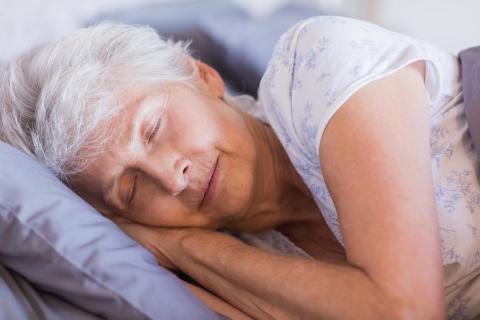Cancer-related Fatigue – what to do about a fatigue that can’t be slept off

Fatigue is the most common complaint from people with cancer and it’s different from the fatigue that comes with daily life – it can’t just be slept off. Termed “cancer-related fatigue”, it’s a distressing and persistent, physical, mental and/or emotional tiredness related to cancer and its treatments. This fatigue can last for months to years and very commonly, people with cancer are looking for energy support.
Although the causes of cancer-related fatigue are not fully understood, there are underlying factors to consider when looking to improve energy. This means considering drug side effects, pain, sleep quality and quantity, nutritional status, tissue damage, chronic inflammation, emotional distress, and mitochondrial function. Because cancer-related fatigue can be caused by many factors, it is essential to have a comprehensive plan, including self-care methods, to reduce and cope with symptoms.
Whether you are on active cancer treatment or not, here are some tips to help manage cancer-related fatigue and improve energy:
Movement
Although seemingly contradictory for treating fatigue, exercise and movement is excellent medicine and well-supported by the research for improving cancer-related fatigue. Aerobic exercise, where heartrate and breathing are increased, is more helpful for fatigue-management compared to resistance or weighted exercises. Aerobic exercise has an effect on our mitochondria, the energy-producing factories in our cells; it can help us produce more of them as well as facilitate their repair. Physical activity can also result in secondary benefits such as improved muscular function, improved self-esteem and mood, and there is some evidence suggesting it can have a positive effect on the immune system.
Interestingly, the research suggests that low-intensity exercise is more effective than high-intensity for improving cancer-related fatigue. A good place to start is to go out for a 20-30-minute walk, most days of the week. In order to not overexert yourself, monitor your recovery time after activities – you should be able to recover in less time than the activity itself. If, for example, you are going out for a 30-minute walk and then need to rest on the couch for an hour afterwards, cut back on the time or intensity. As you begin to build stamina and feel more energetic, you can increase the time or pace, or change the activity to biking, light jogging, interval walking, low-impact aerobics or other exercises that you enjoy.
Herbal support
Some herbs have been studied in supporting energy in people with cancer. Always consult with a qualified naturopathic doctor before starting any supplements, including herbs, as some should be avoided during active cancer treatment.
Ashwagandha (Withania somnifera) is an herb that has potential against cancer-related fatigue, in addition to improving quality of life. This herb has been proposed to influence brain chemistry in a way that can ease mental stress and anxiety, improve cognitive functioning like memory and shown to improve energy scores in people with breast cancer. In naturopathic medicine, Ashwagandha is known as an adaptogen – an herb that has restorative properties on the body’s stress response system, which could ultimately help your body adapt to stressful situations.
Another herb to consider is in the ginseng family; Panax quinquefolius, also called American gingseng. It has been studied in people with various cancers and shown to provide a significant improvement in general exhaustion, compared to a placebo group. Ginseng has long been used in traditional Chinese medicine as a natural energy support and its active ingredients, called ginsenosides, are thought to have anti-inflammatory and stress-hormone modulating effects.
If you feel your cancer-related fatigue is impeding your quality of life, consider speaking with a Natural Health Care Practitioner such as a Naturopath Doctor (ND), to learn about other supplements as well as lifestyle interventions that could help improve your energy.
References:
https://www.ncbi.nlm.nih.gov/pmc/articles/PMC5810532/
https://www.ncbi.nlm.nih.gov/pmc/articles/PMC3647480/
https://www.ncbi.nlm.nih.gov/pubmed/23142798
https://www.ncbi.nlm.nih.gov/pmc/articles/PMC3888141/